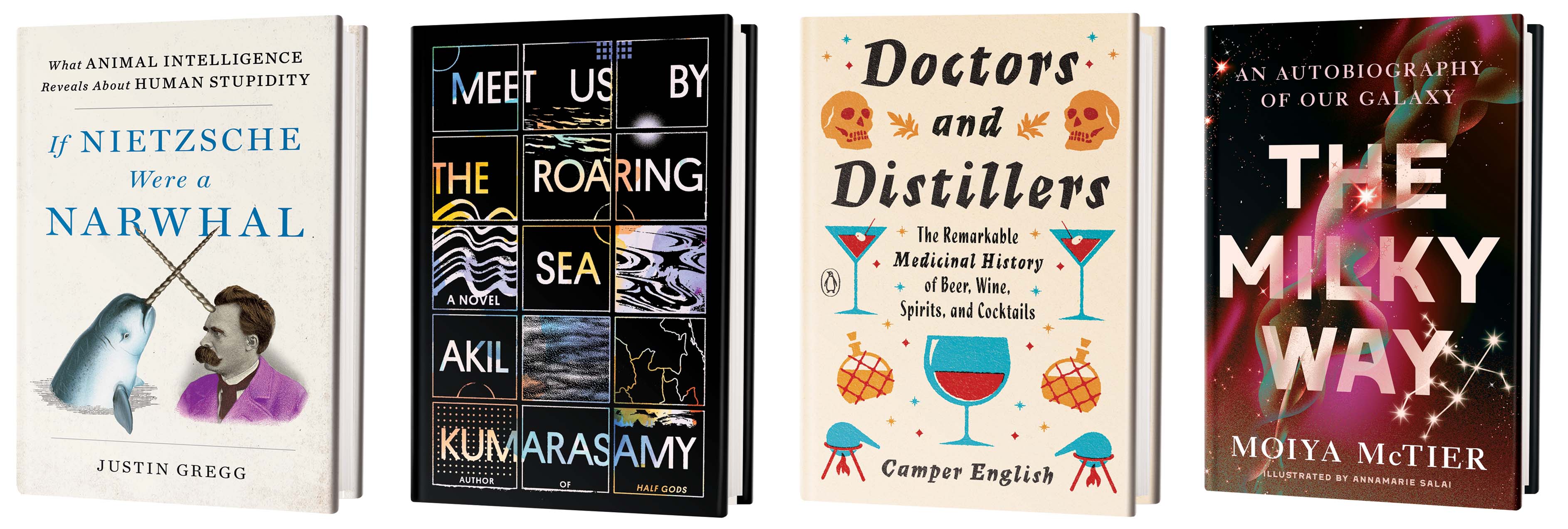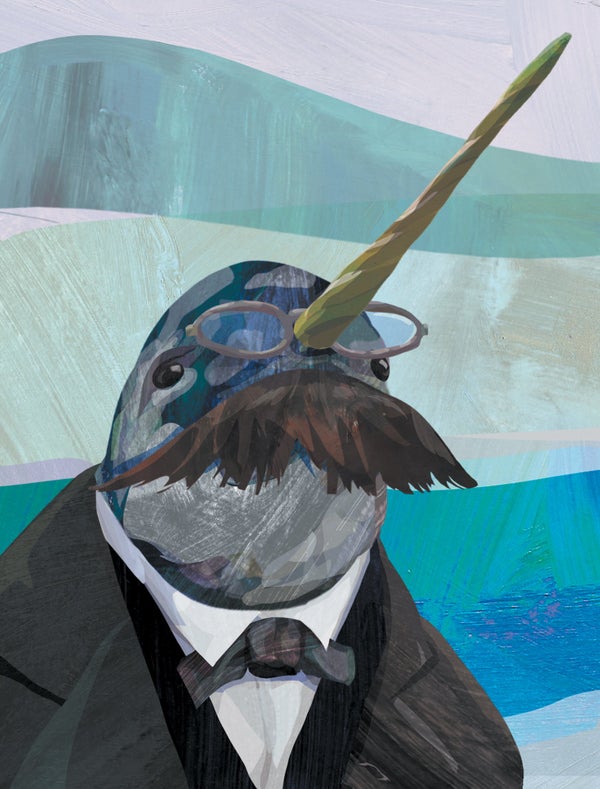If Nietzsche Were a Narwhal: What Animal Intelligence Reveals about Human Stupidity
by Justin Gregg
Little, Brown, 2022 ($29)
Would we, as a species, be better off if we were more like other animals? I suspected I'd enjoy reading Justin Gregg's tour of this question when he opened with a quote from Pyramids, by Terry Pratchett, a book in one of my favorite science-fiction series: “Mere animals couldn't possibly manage to act like this. You need to be a human being to be really stupid.”
Gregg, an expert on animal cognition, explores what human foibles reveal about animal intelligence by invoking philosopher Friedrich Nietzsche. Nietzsche's conundrum, as Gregg sees it, is that he both envied cows and pitied them for the same reason: cows do not have an awareness that they will die. Nietzsche was both an intellectual genius and a mental wreck—the latter overcoming the former when, so the story goes, he witnessed a horse being whipped in Turin, Italy, and subsequently suffered a psychotic break. The premise here is that being unhappy is the price our species pays for intelligence. But how do we know if other animals are actually happier?
Gregg cheekily points out that even the scientists (who are generally considered smart humans) who devote their careers to creating artificial intelligence can't agree on what intelligence is. Humans basically “know it when we see it” and regard intelligence as a positive trait. We often look outward for extraterrestrial signs of intelligence by seeking messages or signals that come from faraway planets. Curiously, we don't do very well with this search on our own planet.
Let's take lying: an overdeveloped human trait that is often employed for advantage. Gregg argues that the key feature of lying is intention. Although there is certainly evidence of deception throughout the animal kingdom, our species has the supposedly superlative abilities of language and “theory of mind.” But do they serve us well? Are we better off? Gregg dives into a fascinating discussion of the downsides, running from Jane Austen (“we have daily proof”) to the modern onslaught of disinformation. From here he compares our species with others in terms of “death wisdom” and mortality and later considers the happiness of bees, as well as what it means to foresee the future.
The book is a snappy read but lingers: it left me wondering why we don't respect signals of intelligence from other species—and more deeply consider how our own intelligence works against us. —Darcy B. Kelley
Darcy B. Kelley is Harold Weintraub Professor of Biological Sciences at Columbia University.
Meet Us by the Roaring Sea: A Novel
by Akil Kumarasamy.
Farrar, Straus and Giroux, 2022 ($27)
Set in a future of eye scans, carbon credits and advanced AI, Akil Kumarasamy's new novel nonetheless feels surprisingly like home—even as it tests the boundaries of self and story. Its protagonist, grieving the recent death of her mother, throws herself into translating a little-known Tamil manuscript about 17 medical students who strove to achieve radical compassion during the Sri Lankan Civil War (dating to 1983–2009). This and her other portals to shared experience—the omnipresent television, a new drug that transfers memories—dissolve the barriers of being into a dizzying alchemy of past and present, love and truth, death and memory. —Dana Dunham
Doctors and Distillers: The Remarkable Medicinal History of Beer, Wine, Spirits, and Cocktails
by Camper English.
Penguin Books, 2022 ($18, paperbound)
Your favorite cocktail may very well have its roots in medicine of generations past. With immense wit and charm, author Camper English traces millennia to explore how civilizations used fermented and distilled beverages to do everything from hydrating the workforce to fending off the Black Death. English takes a tongue-in-cheek approach to his subject matter, resulting in wildly compelling stories, such as how Buckfast, a tonic wine created by monks to treat colds and influenza, became the “U.K.'s version of Four Loko.” It is every bit as entertaining as it is educational. —Mike Welch
The Milky Way: An Autobiography of Our Galaxy
by Moiya McTier.
Grand Central Publishing, 2022 ($27)
Moiya McTier assumes the role of cosmic interpreter to let our galaxy tell her own story. As a character, the Milky Way is a cross between a Greek goddess and GLaDOS, the artificially superintelligent computer system from the Portal video-game series. She gossips about other galaxies, teaches us about her past and imparts a primer on astrophysics, all the while relishing every opportunity to throw shade on humankind's egocentrism and closed-mindedness. McTier—who in 2021 became the first Black woman to graduate from Columbia University's astronomy Ph.D. program—dedicates the book “to everyone who's been made to feel that they're not ‘sciencey enough.’” —Maddie Bender

